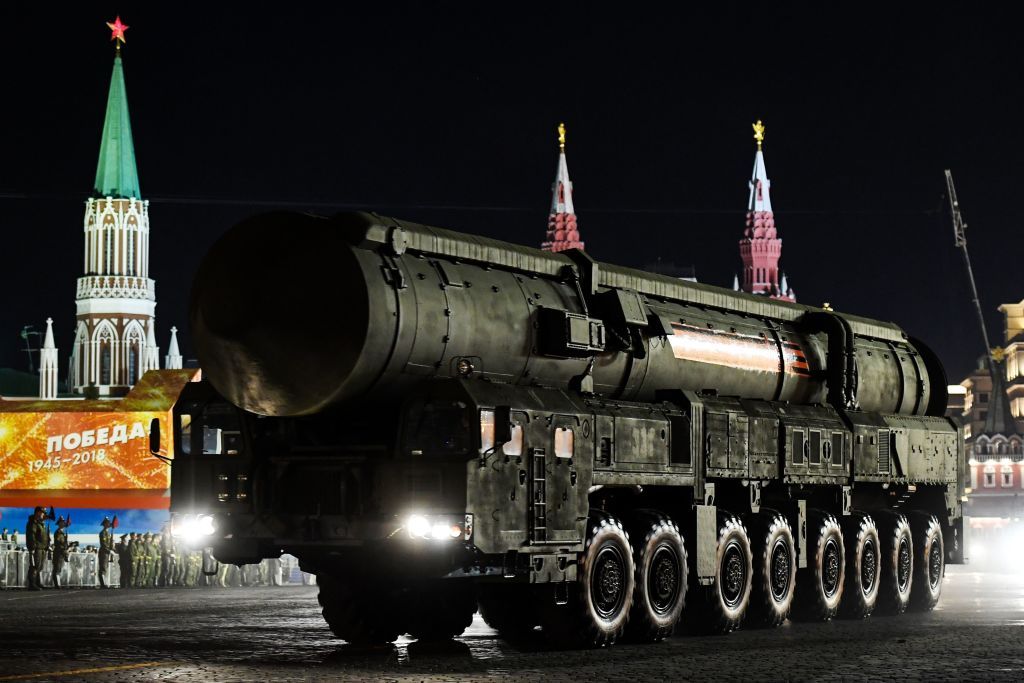
Russian Foreign Ministry Spokesperson Maria Zakharova warned on Thursday of the increasing possibility of a new nuclear arms race with the United States, pointing to recent decisions by the Trump administration and media reports.
"We have drawn attention to reports in the U.S. media on the need for the U.S. to resume nuclear tests," Zakharova said, Russia's Tass news agency reported.
"The emergence of such reports should be viewed as the efforts to prepare the U.S. public opinion for the idea that nuclear tests are allegedly an inevitable need, without which the U.S. national security may be threatened," she continued. "This logic follows Washington's policy towards persistently creating conditions for the possible resumption of nuclear tests."
"The U.S. stance opens the way for unleashing a new round of a nuclear arms race," the foreign ministry spokesperson warned.
Concerns about nuclear tensions between the U.S. and Russia have increased significantly in recent months. President Donald Trump's administration formally announced at the beginning of February that it planned to withdraw from the decades-old Intermediate-range Nuclear Forces (INF) Treaty with Russia, accusing Moscow of violating the agreement's terms. The Kremlin has blamed Washington for disregarding the treaty.
"Russia has not, unfortunately, honored the agreement, so we're going to terminate the agreement," Trump said. "We're going to pull out."
Signed in 1987 between former President Ronald Reagan and Soviet leader Mikhail Gorbachev, the pact mutually banned ground-launched nuclear and conventional missiles with ranges from 310 miles to 3,417 miles. After the Soviet Union's collapse, the treaty continued under the Russian Federation.
"We are very much concerned that after the decision of the United States to withdraw from the INF treaty, missiles could be deployed on the territory of [America's] European allies," Russian Ambassador to Washington Anatoly Antonov said Monday as he spoke at the Henry L. Stimson Center, a Washington security think tank.

"We will be forced to deploy our missiles," he continued, displaying a map of Europe for the audience. "And here you will see that the whole territory of European countries will be covered."
Last month Russian President Vladimir Putin issued a similar warning, saying that his nation's missiles could be aimed at U.S. "decision-making centers" if Washington decided to deploy more missiles throughout Europe.
"We don't want confrontation, particularly with such a global power as the U.S.," Putin said at the time. "I'm saying this clearly and openly. Russia will be forced to deploy weapons that can be used…against the decision-making centers that are behind the missile systems which threaten us."
Uncommon Knowledge
Newsweek is committed to challenging conventional wisdom and finding connections in the search for common ground.
Newsweek is committed to challenging conventional wisdom and finding connections in the search for common ground.
About the writer
Jason Lemon is a Weekend Editor at Newsweek based in Brooklyn, New York. Prior to taking on the editor role, Jason's reporting focused on ... Read more
To read how Newsweek uses AI as a newsroom tool, Click here.








